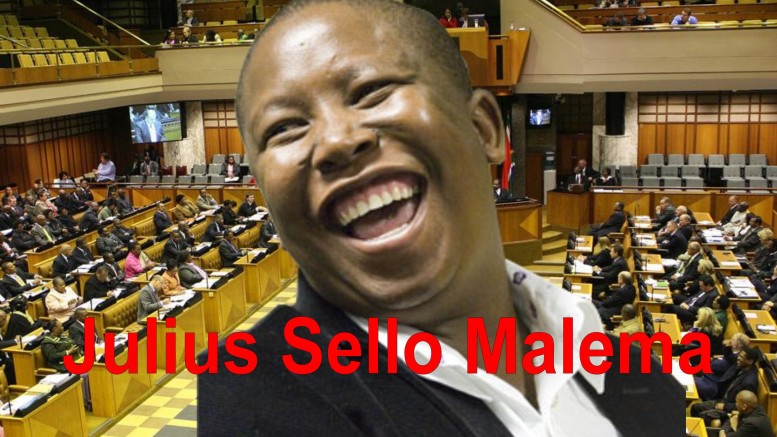-
30 September 2014
- From the sectionAfrica
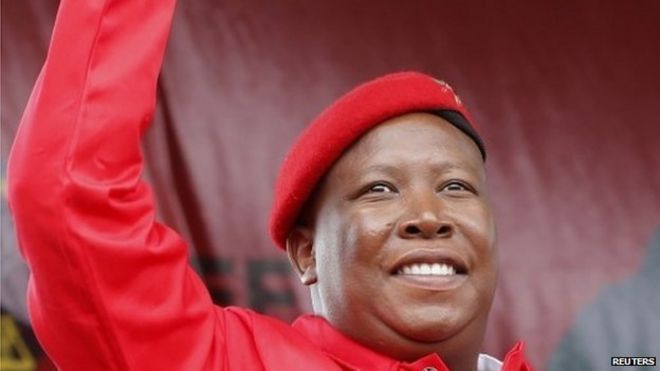
In his short but stellar political career, South Africa’s Julius Malema – the firebrand leader of the opposition Economic Freedom Fighters (EFF) party – has rarely been away from the limelight.
Mr Malema formed the EFF following his expulsion from the governing African National Congress (ANC) in 2012 after a bitter fall-out with President Jacob Zuma.
He has offended large sections of society – from women’s rights groups, to white farmers, to his own political bosses – and has been accused of racism, sexism and corruption, which he denies.
His most strident critics see him as a dangerous rabble-rouser whose pseudo-communist rhetoric and inflammatory statements are designed to generate newspaper headlines, while he feathers his own nest.
Son of a domestic worker
But to his thousands of supporters, he is an inspirational orator whose aggressive focus on the rights of poor black South Africans makes him the rightful heir to the soul of the ANC – and the leadership of the country.
Some commentators thought he would sink into oblivion after his expulsion from the ANC for bringing the party into disrepute, like other popular leaders who have incurred the wrath of the ANC leadership.
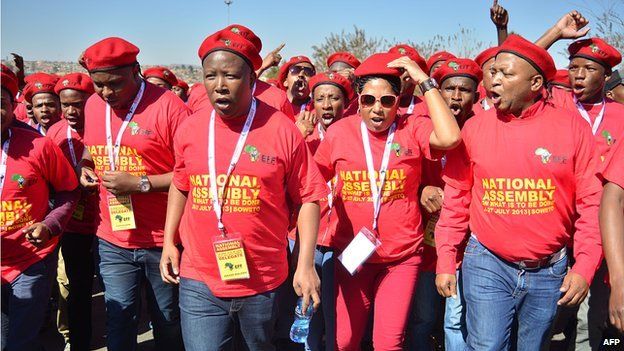
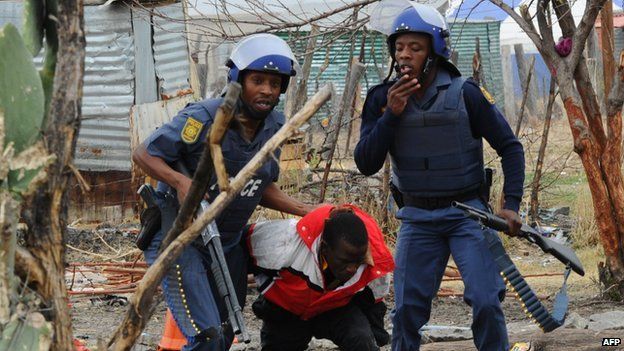
But he has remained on the political stage and was one of the 25 EFF MPs elected to South Africa’s parliament after the newly-formed party gained 6% of the vote in the May 2014 election.
Born in 1981, Mr Malema was raised by his mother Flora, a domestic worker, in Seshego township in the northern Limpopo Province.
He says he joined the ANC’s Young Pioneers group at the age of nine, and was later trained in armed resistance in the years after Nelson Mandela’s release from prison.
He learned how to make petrol bombs and put together firearms, according to reports.
Money-laundering charge
His rise through the political ranks was rapid, becoming regional head of the ANC Youth League at the age of 14 and gaining a foothold in the student movement, before eventually becoming national leader of the Congress of South African Students in 2001.
He has also made a lot of money through various business interests.
But it was his election as ANC Youth League leader in 2008 that made him a key player in national politics.
His earliest actions as leader were to noisily campaign for Mr Zuma to take over – first as ANC leader and later as president – telling a crowd of supporters that he would “kill for Zuma”.
It was his close relationship with Mr Zuma that landed him in court for the first time when he suggested that a woman who accused Mr Zuma of rape had had a “nice time” because she had “requested breakfast and taxi money”.
He was eventually found guilty of hate speech over the incident. Mr Zuma was acquitted of rape.
But Mr Malema’s relationship with Mr Zuma soured soon after the latter became president in 2009. Mr Malema accused his former ally of ignoring the poor voters who had propelled him to power.
On the campaign trail, he has called Mr Zuma “domkop” (an Afrikaans word for fool) and has apologised to South Africans for backing his ascent to the presidency.
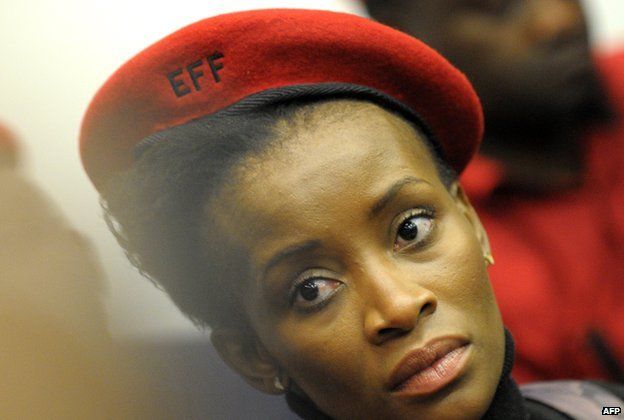
He says he is “unshaken” by the fact that he is due to be tried in court later this year on a money-laundering charge. The case against him relates to a government tender awarded to a company partly owned by his family trust, while he was an ANC member.
Mr Malema says the charges are a “conspiracy” the ANC hatched after his expulsion, to destroy his political career.
He has also been involved in a battle with tax authorities who have taken court action to sequestrate him over his alleged failure to pay more than $1.5m (£890,000).
This has already led to Mr Malema’s incomplete mansion, which was supposed to have a hot tub and cinema room, in the posh Johannesburg suburb of Sandton being sold at auction for about $650,000, reported.
A farm he owned in Limpopo was also auctioned, fetching about $240,000, South Africa’s Sowetan newspaper reported
http://www.bbc.com/news/world-asia-pacific-14718226

